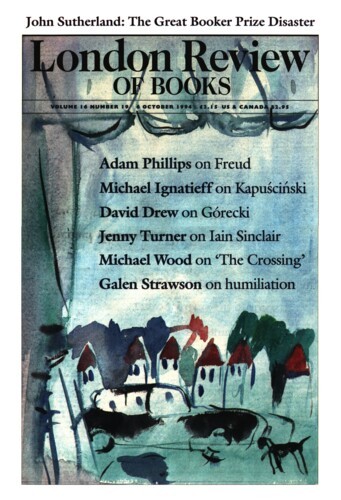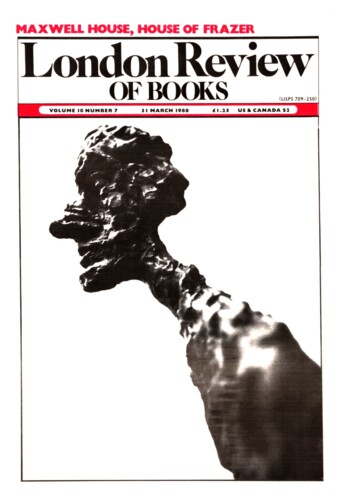In the Iguanodon Diner
J.W. Burrow, 6 October 1994
At the famous dinner held in the Crystal Palace in 1853, with 22 gentlemen seated inside a reconstructed iguanodon, the head of both the table and the beast was held – as of right – by Richard Owen, universally acknowledged as Britain’s premier anatomist, ‘the English Cuvier’, and arguably the foremost British ‘man of science’ of his generation. It is true that he was not, even then, entirely without detractors. Gideon Mantell, his rival in the kingdom of the ‘dinosaurs’ (Owen’s coinage), was a constant and acid critic, and competitive reconstructionist, while T.H. Huxley, soon to be Owen’s junior colleague as lecturer at the School of Mines, was about to begin, long before the Darwinian controversy, what looks suspiciously like a systematic campaign of detraction, designed to establish his own reputation on the ruin of Owen’s, which was to reach its celebrated climax a decade later.’


